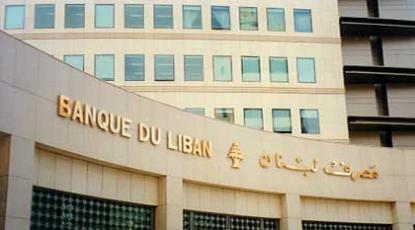 The economic outlook for Lebanon is not nearly as bad as some would have you believe.
The economic outlook for Lebanon is not nearly as bad as some would have you believe.
And that presents an opportunity for investors to buy Lebanese government bonds at a potentially massive discount.
Yes, on the face of it, Lebanon’s current situation seems dire, especially when you consider the following:
- Around one-in-four of the country’s 6 million population are refugees from the war in Syria. That rises close to one in three when refugees from countries other than Syria are considered.
- The recent attack on oil tankers off Oman could cause problems for Lebanon. “The most immediate threat is that the country could find itself caught in the crosshairs amid escalating tensions between the Gulf countries and Iran,” states a recent report from London-based financial consulting firm Capital Economics. Lebanon’s government includes representatives of the Iranian-backed militant group Hezbollah.
- The country’s debt rating looks set to drop into deep junk status. New York-based bank Brown Brothers Harriman says the rating CCC, a notch below its current S&P rating of B-. A country’s rated CCC is considered “vulnerable” to not repaying the loans.
- The country’s debt now stands at a staggering 152% of GDP up from 131% in 2012, according to data collated by statistics website TradingEconomics.
The biggest problem of all those is the debt, which has been caused by massive overspending by the government. The country has a fiscal deficit, which measures the amount the government spends more than its revenues, of 11% of GDP in 2018 up from 8.6% the prior year, according to TradingEconomics.
Solution at hand
While it all sounds bad, the market is missing something. A solution to the fiscal crisis is at hand, and the prospects for its implementation look good. In turn, that should lead the price of bonds to rally in line with improvements in the country’s credit rating.
“In the past few weeks, there was an agreement at the cabinet level on tax revenue measures and expenditure reduction, which if implemented will reduce the fiscal deficit,” says Garbis Iradian, chief economist for the Middle East & North Africa at non-partisan think tank the Institute of International Finance in Washington D.C.
“By early July they will pass the budget which means the measures will be implemented in the second half of the year,” he says. Part of his optimism is that a multibillion-dollar foreign lending package is dependent on the government implementing economic reforms. In other words, there are big incentives for the country’s leaders to fix things.
The government has discussed a hiring freeze on government jobs. Plus the opportunity to overhaul the public sector due to pending retirements. A recent report by IIF’s Iradian explains:
We also expect that over the next four years, at least 16% of public sector employees will retire, providing a good opportunity to revitalize the public sector, while at the same time reducing its size and enhancing its efficiency without resorting to layoffs.
Put simply, there’s a big opportunity to cut costs that won’t necessarily involve mass firing as not all retirees will get replaced.
Another measure under consideration includes increasing the withholding tax on interest income earned on bank deposits. The country may also implement import duties to raise cash as well, he says. “We also assume that the authorities will take decisive actions to fight corruption and improve tax compliance,” the IIF report states.
Iradian is optimistic that enough of the proposed measures get implemented to radically improve the countries fiscal situation. The IIF report states it like so:
[…] our projections show that the fis- cal deficit could narrow from 11.2% of GDP in 2018 to 8.4% in 2019 and 1.2% by 2023. As a result, the public debt-to-GDP ratio, after staying around 152% in 2019, would be placed on a firm downward trajectory, declin- ing to 130% by 2023
In short, the country’s debt load is set to get slashed by around 14 percentage points as the fiscal deficit narrows.
IIF also sees the country’s real, or inflation-adjusted, growth rate jumping to 4% in 2023 from 0.7% this year.
The combined fiscal improvements and accelerating growth should help prompt a rally in the price of Lebanese government bonds. The country’s U.S. dollar denominated fixed-income securities offer double-digit yields. For instance, bonds due to mature November 2024 recently yielded 11.4% according to Lebanon-based Bank Audi.
Separately, Iradian sees little chance that Lebanon gets drawn into a wider Middle East conflict. “The Lebanese foreign policy is to be neutral,” he says. “I don’t see Lebanon taking any sides.”
FORBES

Leave a Reply
You must be logged in to post a comment.